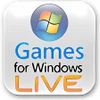Run other guest operating systems inside of a convenient virtual machine right on your existing PC
Run other guest operating systems inside of a convenient virtual machine right on your existing PC
Pros
- Independently runs alongside the host operating system.
- Works as both a virtual machine and a pure emulator.
- Supports a wide range of x86 operating systems.
- Offers customizable options with hard drive image creation.
- Achieves near-native performance levels.
- User-friendly and open-source for community-driven improvements.
Cons
- May have a learning curve for users new to emulation.
- Some advanced features might be daunting for beginners.
- Performance can vary based on the complexity of the emulated OS.
Comprehensive OS Emulation with QEMU
QEMU stands as a formidable emulation and virtual machine software that provides a platform for developers and enthusiasts to run a secondary operating system on top of their primary one. By mimicking the full spectrum of hardware functions, QEMU permits users to run alternative operating systems for testing, development or educational purposes without the need to dual boot or disrupt their main system's environment.
Robust Feature Set for Versatile Use
Key to its utility, QEMU operates independently from the host OS, running as a separate task that does not interfere with the original system's operations. This independence is a boon for developers seeking to isolate their testing environments rigorously. QEMU serves effectively in two roles: as a virtual machine that harnesses host hardware performance capabilities, and as a pure emulator that recreates an entire hardware set up from scratch. Being open-source enhances its adaptability, as it can be readily amended and improved by its user community.
QEMU's compatibility range is expansive, working in alliance with all x86 systems including but not limited to editions of Linux, Windows, and various UNIX variants. The ability for users to craft their own hard drive images adds a layer of customization that is invaluable to both veterans and novices who may be navigating the complexities of operating system emulation for the first time.
Performance That Approaches Native Hardware
One of the distinguishing merits of QEMU is its robust performance levels, which are often comparable to the hardware being emulated. This high efficiency means that operations within the emulated environment proceed smoothly and with minimal lag, lending a near-native experience that's critically important for tasks that require real-time responses, such as software development or interactive testing.
Accessibility for Various User Levels
While its open-source nature could suggest a steep learning curve, QEMU is surprisingly accessible. The interface and the documentation facilitate a smoother transition for users unfamiliar with emulation software. Additionally, the community that surrounds QEMU is active, ever-ready to assist with troubleshooting and enhancements which further cushions the experience for new users.
The capacity to modify and customize the code allows QEMU to be an extensible and flexible tool that meets the rapidly evolving needs of tech professionals. While it might be more aligned with the skill set of developers, its user-friendly edge presents an open door to those willing to delve into the realm of operating systems beyond their primary environment.
Conclusion
QEMU is an essential tool in the kit of any user seeking to test and develop across multiple operating systems without disrupting their primary setup. Its performance is commendably close to native, and the community support buttressing its open-source nature ensures that it is ever-evolving to meet the most current of demands.
Pros
- Independently runs alongside the host operating system.
- Works as both a virtual machine and a pure emulator.
- Supports a wide range of x86 operating systems.
- Offers customizable options with hard drive image creation.
- Achieves near-native performance levels.
- User-friendly and open-source for community-driven improvements.
Cons
- May have a learning curve for users new to emulation.
- Some advanced features might be daunting for beginners.
- Performance can vary based on the complexity of the emulated OS.




